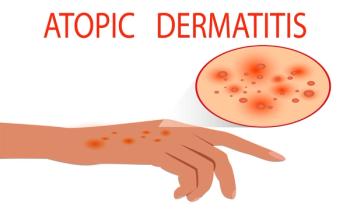
Clinical
Latest News
Latest Videos

CME Content
More News

The hemoglobin, albumin, lymphocyte, and platelet (HALP) score can help to guide treatment decisions in patients living with non–small cell lung cancer (NSCLC).

Obecabtagene autoleucel showed over 70% response rates in relapsed/refractory B-cell acute lymphoblastic leukemia (B-ALL), demonstrating efficacy across all age groups in recent trials.

Many FDA accelerated approvals continue to rely heavily on surrogate endpoints, raising ongoing uncertainty about the true clinical benefits of these therapies.

A panelist discusses how oral combination therapy with decitabine-cedazuridine plus venetoclax shows activity in the relapsed/refractory acute myeloid leukemia setting, achieving responses even in patients with TP53 mutations, prior venetoclax exposure, or prior transplant, though the presenter questions whether 10 days of decitabine offers advantages over the standard 5-day regimen and emphasizes that these oral therapies can effectively extend beyond frontline treatment into salvage settings.

A panelist discusses how the shift from intravenous to oral AML therapies addresses significant quality-of-life concerns by eliminating the burden of spending 7 days per month in clinics for infusions (which can consume nearly half of a patient's remaining 15-month median survival time), while also improving clinic efficiency, though implementation requires careful attention to patient adherence, insurance coverage disparities that may penalize oral medications with higher co-pays, and monitoring for drug interactions.

Panelists discuss how payers seek good return on investment when evaluating expensive gene therapies, creating potential friction when innovative treatments come at significant costs, requiring ongoing dialogue between manufacturers, patients, payers, and physicians to determine appropriate value and access.

Long-term results from the phase 2 OVARIO trial (NCT03326193) highlight the effectiveness of niraparib plus bevacizumab as maintenance therapy in patients with advanced ovarian cancer.

Glucagon-like peptide-1 (GLP-1) receptor agonists significantly enhance overall survival in patients with ovarian cancer, offering a promising adjunct to traditional treatments.

Panelists discuss how data systems and registries should focus on improving care quality rather than just reimbursement, with patient empowerment strategies that encourage individuals to advocate for better treatments like de-prescribing harmful medications.

Panelists discuss how organizations must create system-wide cultural changes through staff training, appropriate clinical environments, evidence-based treatment access, and incentive structures that support rather than punish providers for addressing obesity as a chronic disease.

Significant gaps in arthritis subtype awareness among US adults underscore the need for improved health literacy and more targeted public health efforts.

Secondary analysis findings from the EMPACT-MI trial highlight empagliflozin's significant cardiovascular and kidney benefits when initiated soon after an acute myocardial infarction.

Panelists discuss how the future of PAH treatment looks promising with potential for disease remission through reverse remodeling agents, emphasizing the need for continued research focus on patients with other forms of pulmonary hypertension and those with significant comorbidities.

Panelists discuss how cost-effectiveness analyses of newer therapies like sotatercept show substantial benefits in reducing clinical worsening events and potentially decreasing downstream costs through reduced hospitalizations and transplantations, supporting value-based payment models.

US ovarian cancer mortality rates declined from 1999 to 2020, but significant disparities remain across age, race, and geographic regions, highlighting the need for targeted public health efforts.

Patients with bronchiectasis face heightened risks of severe exacerbation and mortality after COVID-19 recovery, especially following severe cases.

Encounter-level factors played a key role in limiting outpatient COVID-19 treatment for Black and Latino patients.

Although use of corticosteroid premedication prior to infliximab infusions is declining, it remains unnecessarily high despite limited benefit and the risk of serious adverse events from corticosteroids.

An expert discusses how multidisciplinary collaboration can be enhanced through shared knowledge of available drugs and biomarkers among oncologists and pathologists, standardized interpretation methods across different cancer types, and clear communication about trial-specific algorithms to optimize treatment plans and ensure proper biomarker assessment.

Panelists discuss how emerging therapies like CAR T cells and bispecific antibodies may transform frontline treatment by potentially replacing transplant or changing induction regimens, while considering the cost implications and need for sustainable care models.

An expert discusses how the biggest barriers to incorporating antibody-drug conjugates (ADCs) include lacking biomarker knowledge and how payer restrictions can be overcome through early biomarker testing, proper documentation of target expression levels, and following FDA or National Comprehensive Cancer Network (NCCN) guidelines to ensure patient access to appropriate therapies.

Panelists discuss how early relapse in standard-risk patients represents a failure of current risk assessment methods and may require advanced sequencing technologies to identify hidden high-risk features that traditional fluorescence in situ hybridization testing misses.

Following 16 weeks of rezpegaldesleukin treatment in the REZOLVE-AD study, primary and key secondary end points have been met.


Advancements in B-cell therapies, including anti-CD20 and anti-CD19 monoclonal antibodies, enhance treatment efficacy and safety for multiple sclerosis and autoimmune diseases.














